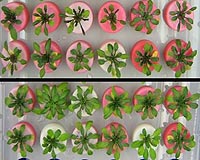 |
Singapore (AFP) July 14, 2009 China's insatiable demand for pangolins is threatening the survival of the vital pest eaters in Southeast Asia and governments must do more to protect them, experts and activists warned Tuesday. "Due to continual demand and the decreasing Chinese wild population, in the past few years pangolin smuggling from Southeast Asia has resulted in great declines in these producing countries' wild populations," wildlife trade monitoring group TRAFFIC said in a report. "China has a long history of consuming pangolin as meat and in traditional medicine," it said. The animals are toothless, scaly mammals that provide natural pest control in the wild by eating ants and termites. "Pangolin populations clearly cannot stand the incessant poaching pressure, which can only be stopped by decisive government-backed enforcement action in the region," said Chris Shepherd, Acting Director for TRAFFIC Southeast Asia. The solution is better enforcement of national and international laws designed to protect the animals, improved monitoring of the illegal trade and more research on existing pangolin populations, TRAFFIC said. A spokeswoman for TRAFFIC told AFP that no estimates of the remaining pangolin populations were available, but the report noted that they are the most frequently encountered mammals seized from illegal traders in Asia. TRAFFIC quoted hunters and traders as saying there are so few pangolins left in forests in Cambodia, Vietnam and Laos that they are now sourcing the animals from their last remaining strongholds in Southeast Asia and beyond. Authorities seized 24 tonnes of frozen pangolins from Sumatra, Indonesia, in Vietnam in March 2008 and 14 tonnes of frozen animals in Sumatra four months later. African pangolins have also been seized in Asia, TRAFFIC said. "Pangolins save us millions of dollars a year in pest destruction," said Simon Stuart, who chairs the Species Survival Commission of the International Union for Conservation of Nature. "These shy creatures provide a vital service and we cannot afford to overlook their ecological role as natural controllers of termites and ants." Share This Article With Planet Earth
Related Links Farming Today - Suppliers and Technology
 Scientists Closer To Developing Salt-Tolerant Crops
Scientists Closer To Developing Salt-Tolerant CropsAdelaide, Australia (SPX) Jul 14, 2009 An international team of scientists has developed salt-tolerant plants using a new type of genetic modification (GM), bringing salt-tolerant cereal crops a step closer to reality. The research team - based at the University of Adelaide's Waite Campus in Australia - has used a new GM technique to contain salt in parts of the plant where it does less damage. Salinity affects ... read more |
|
| The content herein, unless otherwise known to be public domain, are Copyright 1995-2009 - SpaceDaily. AFP and UPI Wire Stories are copyright Agence France-Presse and United Press International. ESA Portal Reports are copyright European Space Agency. All NASA sourced material is public domain. Additional copyrights may apply in whole or part to other bona fide parties. Advertising does not imply endorsement,agreement or approval of any opinions, statements or information provided by SpaceDaily on any Web page published or hosted by SpaceDaily. Privacy Statement |